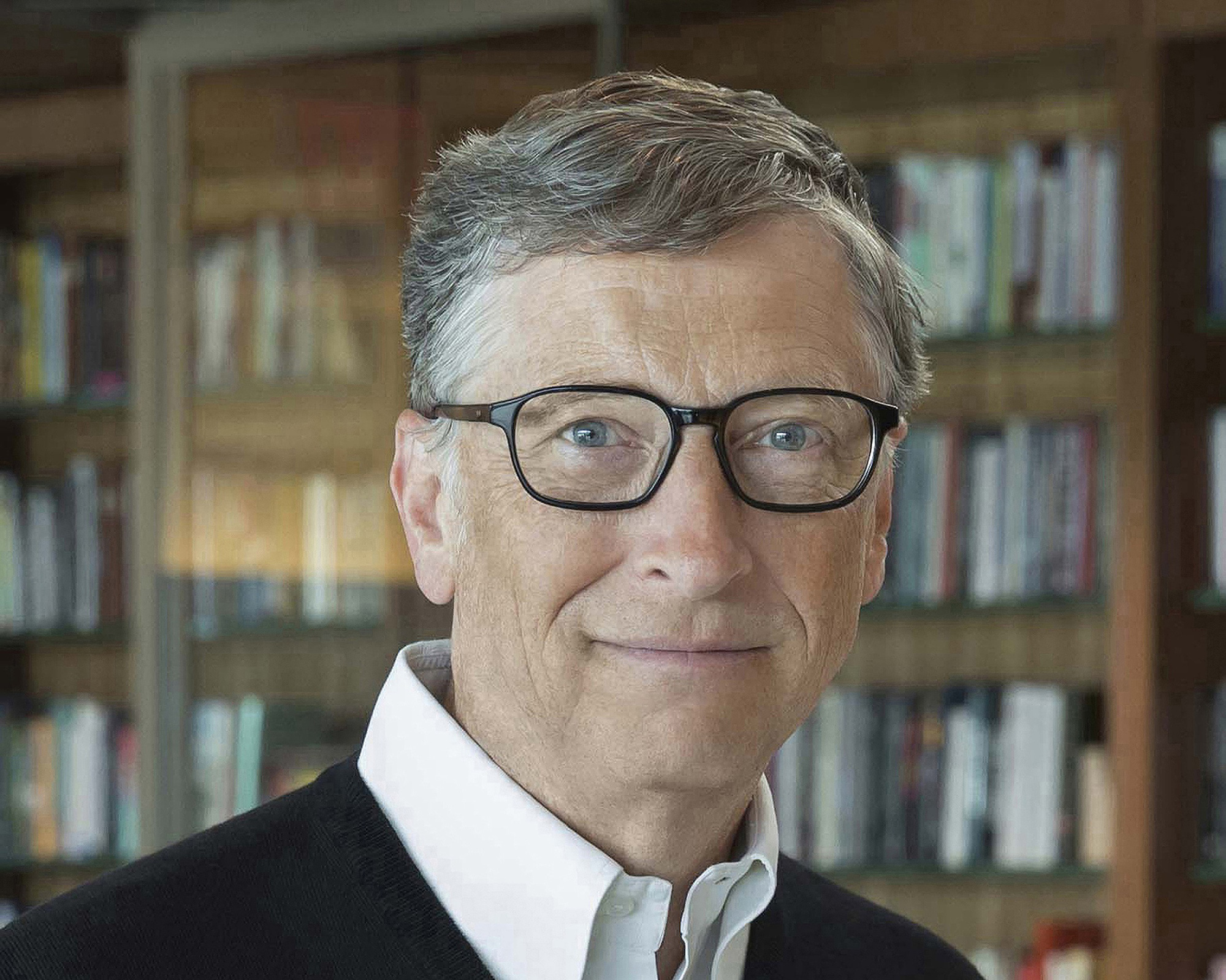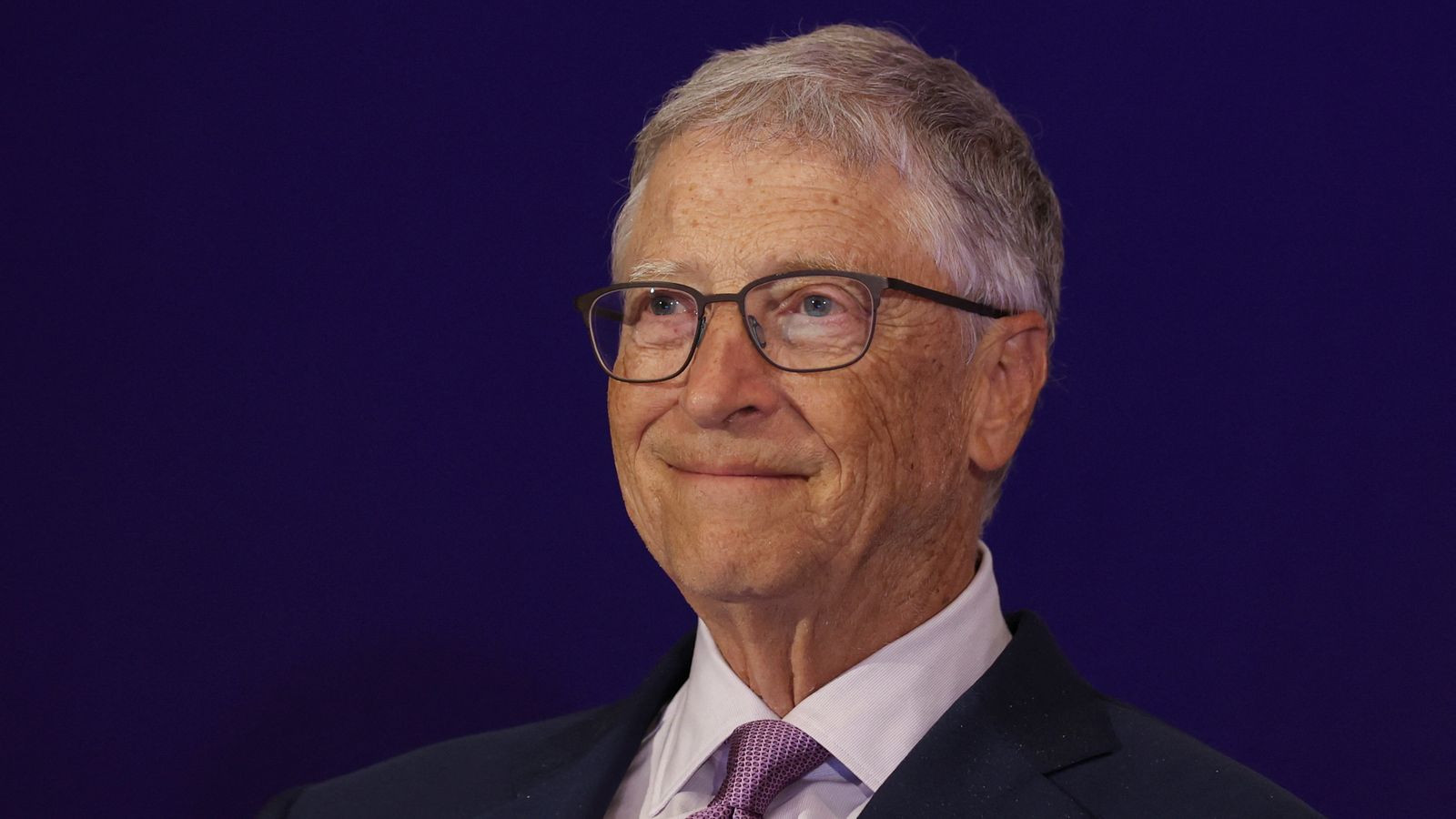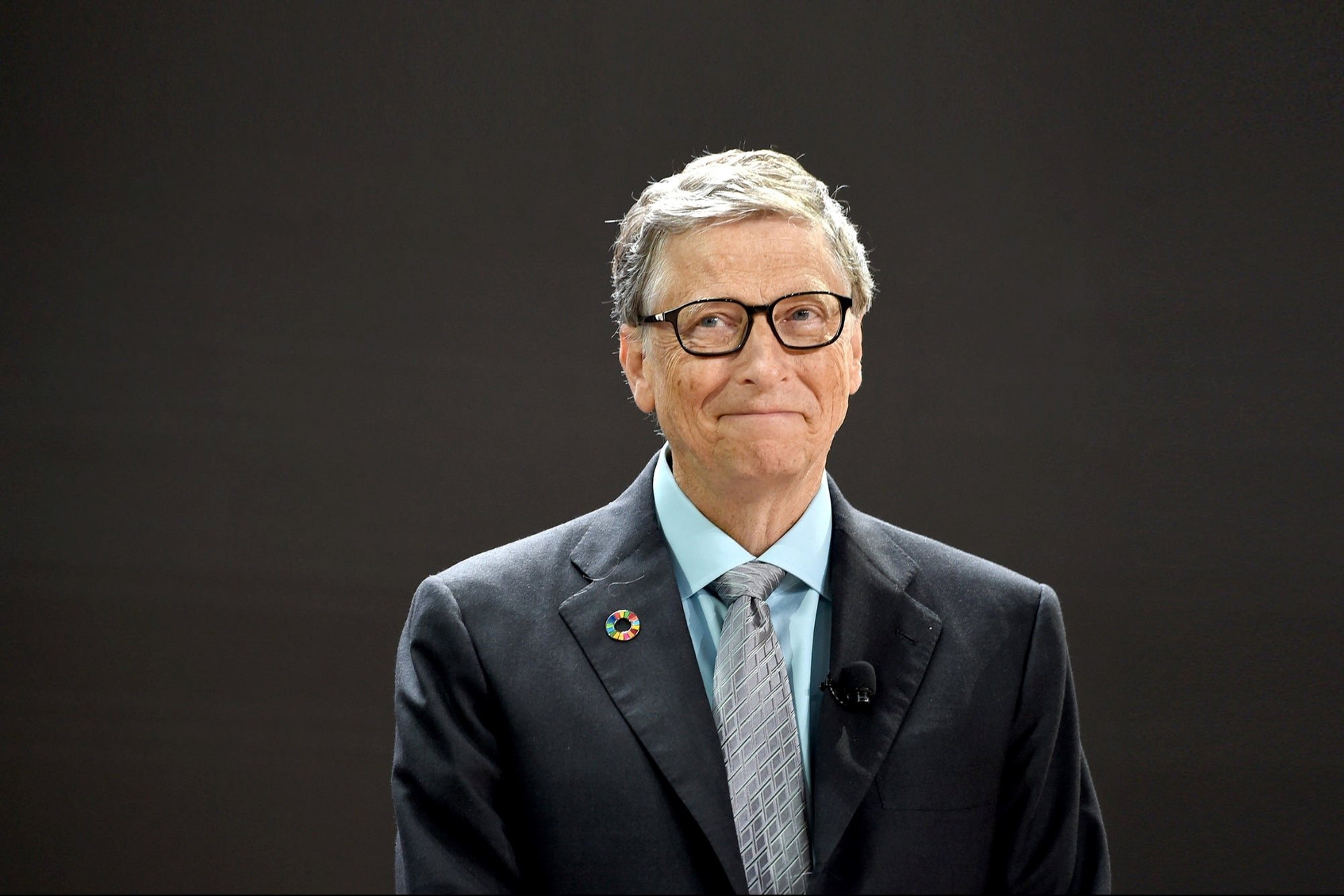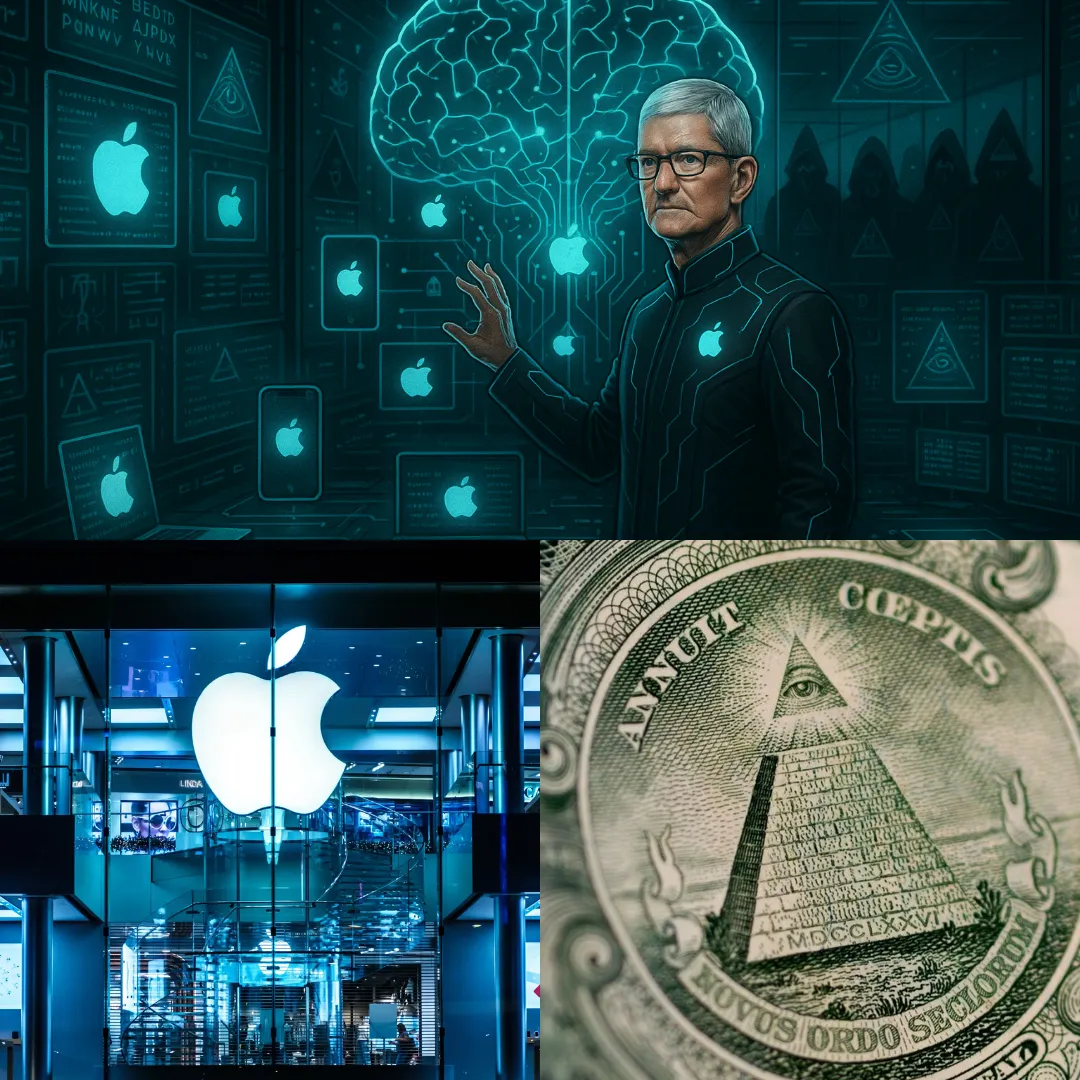
In the fight against global food waste, Bill Gates has become a significant player through his investment in Apeel Sciences, a company that has developed a plant-based coating technology designed to extend the shelf life of fruits and vegetables.
This innovation has the potential to change the landscape of food preservation, offering a solution to one of the most persistent challenges in the agricultural industry.
The company’s product, which is already making waves, is gaining attention for its ability to reduce spoilage and waste, particularly in the fresh produce market.
With the backing of Gates and his philanthropic foundation, the technology is poised to have a profound impact on food security and sustainability.
However, the journey of Apeel Sciences has not been without controversy, as critics question the implications of this innovation on organic certifications and consumer trust.
Apeel Sciences has revolutionized the way we think about food preservation. The company’s plant-based coating, which is made from materials sourced from plants, is applied to fruits and vegetables to create a barrier that slows down the rate of spoilage.
By using this natural coating, Apeel’s technology helps to maintain the freshness of produce for a longer period, reducing the need for refrigeration and the likelihood of food being discarded prematurely.

This is a critical breakthrough in the fight against food waste, as a significant portion of the food produced globally never reaches consumers due to spoilage.
According to the United Nations, roughly one-third of all food produced for human consumption is wasted every year, amounting to around 1.3 billion tons. With a growing global population and increasing concerns about environmental sustainability, finding innovative ways to reduce food waste is crucial.
The approval of Apeel’s coating for use on organic produce in the United States marked a significant milestone for the company.
Organic farming practices, which focus on environmentally sustainable methods, have seen a rise in popularity in recent years.
As more consumers turn to organic options in their quest for healthier and more sustainable food choices, the introduction of a plant-based coating that extends the shelf life of organic produce represents a major opportunity for the industry.
Apeel’s technology not only reduces food waste but also helps to keep organic products fresher for longer, improving their availability and reducing the carbon footprint associated with food transportation and storage.
The backing of Bill Gates and his foundation has given Apeel Sciences a significant boost. Gates, a vocal advocate for global health, sustainability, and food security, has long been involved in efforts to combat hunger and poverty.

Through the Bill & Melinda Gates Foundation, he has invested in various initiatives aimed at improving food security, particularly in developing countries where food waste and spoilage are rampant.
By supporting Apeel Sciences, Gates has aligned himself with an innovative company that has the potential to address two critical issues: food waste and environmental sustainability.
With Gates’s influence, Apeel has gained access to resources and networks that could accelerate the company’s growth and expand its reach worldwide.
However, the growing success of Apeel Sciences has not come without its share of controversy. One of the primary concerns raised by critics is the impact of the plant-based coating on organic certifications.
Organic produce is held to strict standards that prohibit the use of synthetic chemicals or additives in the farming and processing of food.
The introduction of Apeel’s coating on organic produce has raised questions about whether this technology aligns with the core principles of organic agriculture.
While the coating is made from natural plant materials, some argue that it could compromise the integrity of organic certification by introducing an external layer to the produce.

This concern has sparked debate within the agricultural community, with some arguing that the benefits of reducing food waste outweigh the potential risks to organic certification, while others believe that any intervention in the organic process should be strictly regulated.
Another issue that has surfaced is the potential for consumer mistrust. As the use of Apeel’s coating becomes more widespread, there is the possibility that consumers may be wary of the long-term effects of consuming coated produce.
Despite being made from plant-based materials, the idea of a coating being applied to food raises concerns for some shoppers, particularly those who are already skeptical of the food industry’s practices.
The lack of transparency surrounding the ingredients and the potential for misunderstanding about the nature of the technology could contribute to a negative perception of the product.
In an era where consumers are increasingly concerned about the origins and quality of their food, maintaining trust is essential. If the public perceives Apeel’s technology as a “chemical coating” or something artificial, even if it is plant-based, it could hurt the company’s reputation and hinder its potential for success.

The critics of Apeel’s technology argue that the company is prioritizing profit over transparency and the preservation of organic integrity. Some believe that the use of a coating, regardless of how natural it is, represents a step backward in the movement towards more authentic and less processed food.
Others worry that the widespread adoption of the technology could lead to a situation where food producers rely on coatings to extend shelf life, rather than focusing on improving the quality and freshness of the food itself through better farming and distribution practices.
In this view, Apeel’s technology might be seen as a Band-Aid solution to a deeper issue—one that calls for systemic changes in the way food is produced, transported, and consumed.
Despite these concerns, the potential benefits of Apeel’s technology are hard to ignore. The company’s ability to extend the shelf life of produce and reduce food waste offers a significant opportunity to improve global food security.

In regions where access to fresh produce is limited and food waste is a major issue, Apeel’s technology could provide a solution that helps feed more people with fewer resources. Moreover, the environmental impact of food waste is staggering.
According to the Environmental Protection Agency (EPA), food waste accounts for roughly 8% of global greenhouse gas emissions, making it a key contributor to climate change.
By reducing food waste, Apeel’s technology could play a role in mitigating the environmental impact of the food industry, helping to build a more sustainable future.
The support of Bill Gates and the Gates Foundation for Apeel Sciences underscores the importance of innovation in tackling some of the world’s most pressing issues.
Gates has long been a proponent of using technology to solve global problems, particularly in the fields of health, poverty, and sustainability.
His involvement with Apeel reflects his belief that new solutions to food security and sustainability are necessary to address the challenges of the 21st century.

The company’s success could have far-reaching implications, not just for the agricultural industry, but for the future of food production and distribution worldwide.
In conclusion, Apeel Sciences represents a bold step forward in the quest for more sustainable food systems.
While the technology raises legitimate concerns, it also offers a potential solution to two of the most significant challenges facing the global food industry: food waste and sustainability.
With the backing of Bill Gates and the Gates Foundation, Apeel’s innovation has the potential to transform how we think about food preservation, while also addressing global hunger and climate change.
However, for the company to achieve long-term success, it will need to address the concerns of consumers and the agricultural community, ensuring that its technology is transparent, safe, and aligned with the principles of sustainability.
The future of food could very well depend on the continued development of technologies like Apeel’s, which combine innovation with the pressing need for environmental responsibility.


-1749609265-q80.webp)
